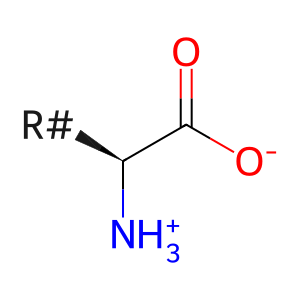Reaction: Proteasomal cleavage of substrate
The 26S proteasome complex consists of the 20S catalytic core particle which harbours the proteolytically active sites and the regulatory 19S particle which is responsible for substrate interaction. This process generates a vast number (perhaps hundreds) of different peptides, depending on the length and sequence of the substrate protein. Only a small fraction of these peptides (nearly 10%) form the exact length to be presented by class I MHC; most (approximately 70%) are too short to bind. The remaining proteasome products (10-20%) are N-terminally extended precursors that require additional cleavage by cytosolic aminopeptidases for presentation by MHC class I molecules.
Reaction - small molecule participants:
oligopeptide fragment (8-16aa) [cytosol]
L-amino acid [cytosol]
precursor peptide fragment (>16 aa) [cytosol]
Reactome.org reaction link: R-HSA-983150
======
Reaction input - small molecules:
Reaction output - small molecules:
oligopeptide
L-alpha-amino acid zwitterion
oligopeptide
Reactome.org link: R-HSA-983150


